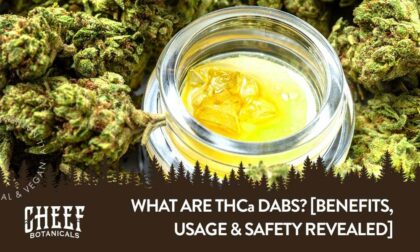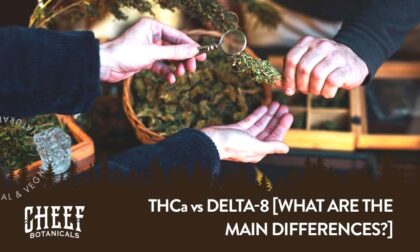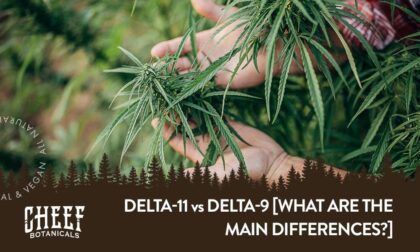Fake CBD Oil & CBD Scams [What to Look For]
Fake CBD oil production is a serious problem that can make it hard to differentiate scams from ethical CBD companies. In every thriving industry, an impostor might try to lure you in with an attractive price tag. The impostor will promise the same or an even better outcome as the originator. Although knock off products are everywhere, for instance, faux designer purses, fake CBD oil scams could end up jeopardizing more than just your wallet. Unchecked CBD oil could affect you or your child’s health.
There are numerous ways to ensure you’re getting real and quality CBD oil versus fake CBD oil, which would come from a questionable vendor who is taking advantage of a misinformed consumer.
What is CBD?
CBD is short for cannabidiol. It is one of many cannabinoids within the hemp plant. Cannabinoids interact with your endocannabinoid system (ECS) which regulates sleep, digestion, appetite, mood, inflammation, and more. One of the most well-known perks of CBD is that it does not produce the psychoactive activity that THC does. Due to the 2018 Farm Bill, which legalized CBD on a federal level, consumers have been curiously dabbling with CBD oil at a higher frequency than in the past.
There is an increasing amount of hemp-derived products that range in level of concentration from full-spectrum to broad-spectrum, and Hemp-Based CBD isolates. The consumption methods have evolved, and include topicals such as balms, salves, and edible CBD gummies.
CBD is known for its abundance of wellness-promoting benefits. The Harvard Medical School Health Blog says that some studies have proven CBD may aid with many important functions, such as sleeping, body soreness, and much more. With that being said, the only CBD based product that is backed by the FDA is Epidiolex. Epidiolex is the brand name for a pharmaceutical-grade cannabidiol oil that is used to combat rare seizures. The extent to which CBD can help us is still being studied as scientific research continues.
What is CBD Oil?
CBD oil is created through the extraction of CBD from hemp, which is a type of cannabis. It’s then diluted with a carrier like grape seed oil, coconut oil, or hemp seed oil. Carrier oils do what their name implies, which is to make it easier for the body to break down and absorb the CBD. They “carry” the essential oils into our body in an easy-to-filter method.
Many people are turning to CBD oil as a popular therapy alternative. This is because it interacts with your ECS to promote overall wellness. Since your ECS regulates some of the most important functions in your body, such as inflammation, you can discern how important it is to make sure this system is functioning at maximum capacity. Also, when applied topically, CBD may provide relief on the surface as well.
Please keep in mind that you should ‘t smoke or try to vape CBD oil. If you would like to inhale CBD, try CBD concentrates or premium CBD flower. These do not include carrier oils, which may be harmful to smoke.
CBD oils can be utilized in a number of ways. These include CBD tinctures, capsules, topicals, edibles, and more. But no matter what CBD product you decide to go with, it is important to know how the oil is processed.
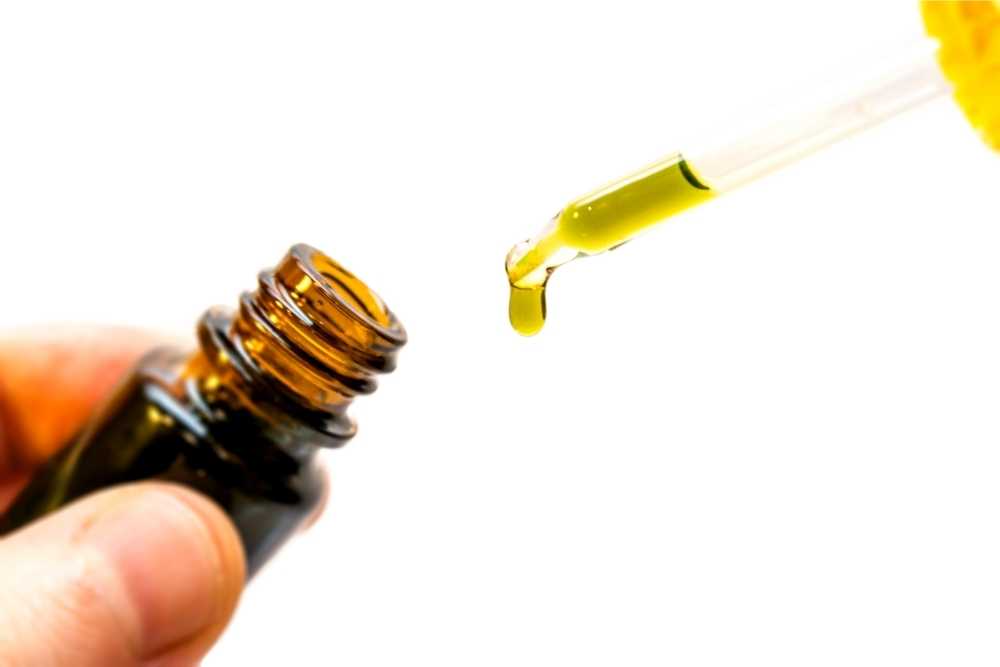
How is CBD Processed?
The whole process starts with cultivation. Organically grown hemp must first be dried and cured.
After cultivation, a variety of extraction methods can be used to separate and then collect compounds from the hemp’s stalks, flowers, and seeds. One of the best methods producers use is a supercritical CO2 extraction method, which uses non-toxic fluid CO2 in place of traditional solvents like ethanol or butane. Supercritical CO2 exists on the spectrum somewhere between gas and liquid and is listed as GRAS (generally regarded as safe) by the Food and Drug Administration (FDA). It is often used for commercial extraction in the food industry.
In order to extract all the desired elements, the supercritical CO2 gets forced through the grounded plant material. It will pull out the CBD, lipids, essential oils, and beneficial compounds. Manufacturers will let the CO2 evaporate, or they put the extract into a vacuum chamber to speed up the evaporation process. Then, you are just left with the extracted material.
After the extraction process, the compounds will ideally be examined for cannabinoid content reliability and safety prior to being combined with carrier oils or placed into products for consumers. Experienced technicians will test for degradation, damage, or contamination in the extract to ensure that consumers receive a safe and reliable product.
From cultivation to packaging, the process is long, tedious, and expensive, but it’s all done to ensure you receive the quality you pay for.
Common CBD Scams to Be Aware Of
Cannabidiol is a substance that is scientifically proven to be highly tolerable for human and animal consumption. However, this is only true of natural CBD. You will find many products on the market that claim to be 100% organic, but even these can be fake claims. Be aware of all the common scams listed below.
Low Price
Before we get into the different price scams, we need to establish that no quality manufacturer will ever sell cheap CBD. The processing method we explained is expensive, from sourcing to bottling the hemp products. A company offering ridiculously low prices or any outstanding special discounts is worth double-checking before you purchase anything.
If it looks too good to be true, it probably is. Low prices from the get-go are a red flag, yet others will try to pull you in with free trials. They will claim you only have to pay a small shipping fee. The fine print will most likely include a monthly subscription fee that will be difficult to cancel. By the time you do, the company will have gotten away with a lot of your money.
Tall Promises
While CBD has made a name for itself in the wellness industry, be cautious of companies who start making unrealistic claims about their CBD products. This includes claims of cured cancer or other medical miracles. Do your research on what hemp can really help you with based on your individual needs.
THC Amounts
While full-spectrum CBD contains trace amounts of THC (0.3% or less), broad-spectrum CBD and CBD isolates should have no THC at all. If you purchase any CBD products from non-reputable sources, they may not follow these guidelines. While the minuscule amount of THC in full-spectrum CBD is not enough to get you high, it may cause you to fail a drug test. Because of this, some consumers who get drug tested for work stick with broad-spectrum CBD to be safe. Don’t risk your job security by buying CBD from non-reputable companies that may still contain THC in products that should not have any.
How to Spot Fake CBD Oil & CBD Scams
Some companies will try to sell you fake oils and might have you wondering, “Can CBD oil make you sick?” Educate yourself on the differences so that you don’t end up with harmful or useless products. Aside from prices being suspiciously low, check out the following tips on avoiding something diluted or dangerous.
Hemp Seed Oil
Fraudulent companies will try to pass hemp seed oil for hemp CBD. If it’s hemp seed oil, it will be listed as cannabis Sativa seed oil. If it’s CBD oil, you will see cannabidiol clearly written on the label. Hemp seed oil is used as a carrier oil and is not the same as CBD oil. This scam is widespread on Amazon.com.
Poor Labels
The label of a product can tell you a lot about the product and brand. Quality CBD oil products should come with a professional-looking label. There should be no spelling errors and the vocabulary should read clear and concise. Blurry labels or labels not applied correctly could also be a sign of a faulty product.
Oil Color, Viscosity, & Translucency
Real CBD oils all share similar qualities. The color usually ranges from tan to clear. Dark to blackish oils could be questionable. The viscosity of a quality oil should be that of vegetable or olive oil. A super thick or watery viscosity could be an indication of a cheap product. As for the translucency, real CBD oils are pretty clear. Fake CBD oils might look murky, opaque, or even have floating material inside.
How to Identify Fake CBD Oil Products
The following list is important to look out for before purchasing any CBD products. Here are a few quick ways to spot fake CBD scams online and in-person:
High CBD content
Check for CBD content in milligrams (mg) on the label. This is how you identify the concentration of the CBD product. It should be noted that the total volume of the liquid does not guarantee a CBD concentration. A big giveaway is a lack of commas or the inclusion of periods in the number. Another red flag is if the content is somehow more than the bottle’s size. How do you make 150mL of a substance fit into a 130mL bottle? You can’t, obviously, the label is lying.
Lack of Certifications
Why take a chance on CBD products that contain no certifications? All reputable cannabis companies will provide a Certificate of Analysis (CoA) with their product. If there are no CoA’s or third-party testing involved, it isn’t worth your money nor your health. In fact, it’s encouraged to immediately report these companies so that their potentially dangerous products get removed from the market.
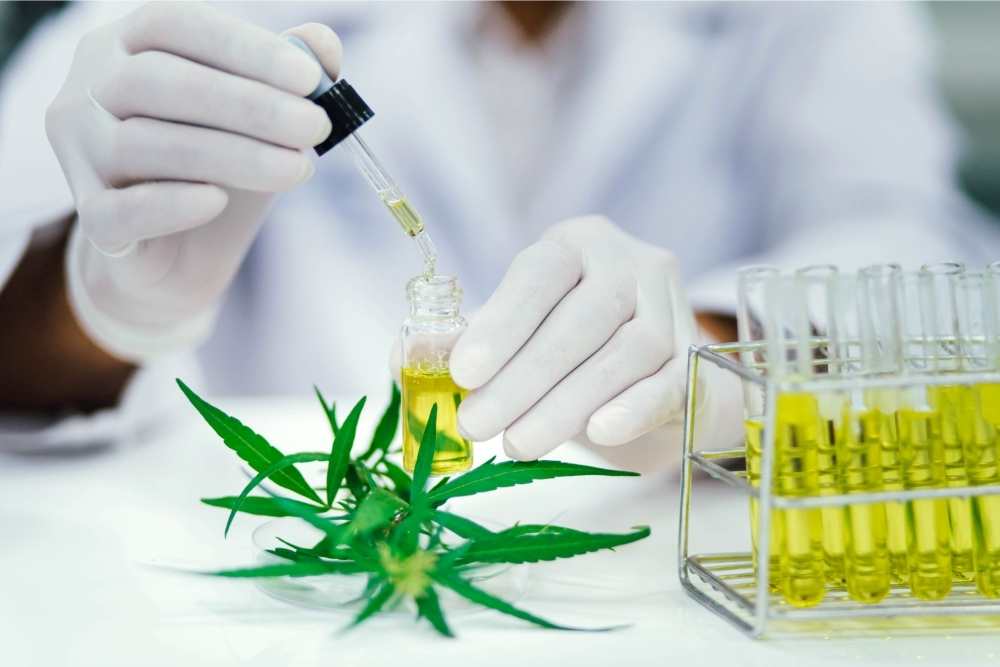
What to Look for When Shopping for CBD Oil Products
Fake CBD companies will make a lot of claims with no proof to back it up. Look for companies that contain all of the following on their website.
Third-Party Testing
Third-party lab results increase credibility. Look out for products that have undergone rigorous testing with a passing certificate to prove it. These test results should be easily accessible and regularly updated so that you know they are legitimate. Fake CBD oil typically will typically have no labels confirming third-party testing.
Customer Reviews
Always read the reviews. Too many five star reviews posted on the same day could be generated reviews. Terrible grammar could also be another sign of bogus reviews.
Made in the USA
You should look for products made in the USA made by brands located in the USA. Hemp that is officially grown in the United States is highly regulated. Therefore, it is safer for consumption. Imported hemp and hemp products do not follow the same standards and guidelines of those produced in the US. Imported CBD products could include harmful ingredients and they could also be fake.
Return Policy and Customer Service
Before finalizing your purchase, check the company’s return policy. A legitimate company will have something similar to a 30-day money-back guarantee. There should also be an understanding that consumers will have questions. If there is no phone number, email, another method of contact available, you may be looking at a scam company.
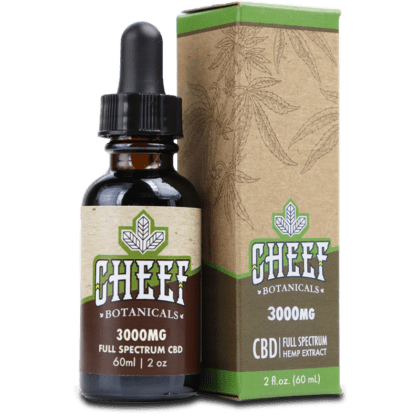
Final Thoughts – Fake CBD Oil & CBD Scams
A study conducted in 2016 involved the purchasing and testing of random cannabidiol extracts sold online to test for accuracy. Each of the 81 products from 31 different companies was tested for label accuracy, and 26% were found to contain less CBD than stated. Furthermore, other products within the same study were found to have THC doses high enough to cause intoxication or impairment. There is definitely a lot of fake CBD oil scams out there, so please be cautious!
These results showed how easy it is to end up with something faulty or mislabeled. This means it is increasingly essential for consumers to be on the lookout for fake or cheap products. You can keep yourself safe now by knowing what to avoid when purchasing CBD oil!. Read more here.



